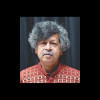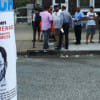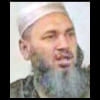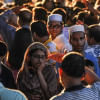A double murder in New York
There was nothing distinctive about Maulana Alauddin Akonji and his associate Tara Uddin, except their Islamic garb and flowing beard. Akonji was the imam at Al-Furqan Jame Mosque at Ozone Park in Queens, and Tara Uddin his assistant. On August 13, after leading the mid-day prayer, the two were heading home. Akonji had some last minute shopping to do, he was flying back to Dhaka the next week to attend his son's wedding.
They never flew back. Both of them were brutally murdered by a complete stranger. Oscar Morel, a porter at New York's New School University, shot the two men point blank, a few blocks from the mosque where Akonji and Tara Uddin had just said their last prayers.
How does one explain such a totally mindless murder?
On Sunday, a couple of hundred people had gathered at Al-Furqan mosque after mid-day prayer to express sorrow and anger, but also to show solidarity. Among them were top officials of New York City. Everybody seemed shocked and not sure what to make of it. I spoke with the Queens Borough President Melinda Katz, who was negotiating between talking to grieving community members and the inquiring media. Could it be the result of the rising Islamophobia? I asked her.
Melinda Katz did not want to speculate. Let the police do its job and we will soon know what really happened, she told me. "I have total confidence in our police and justice system". It's not the time for blame game, she told me, her eyes clouded with sadness.
But there were others who did not want to be so diplomatic. Donald Trump has been blaming Muslims – all Muslims – for complicity in terror attacks in the US and, if elected as President, has promised a total ban on Muslim entry to the US. He thinks Muslims in the US know who these terrorists are and give them shelter. If necessary, put all Muslims and their mosques under surveillance, he has suggested.
"Sure, this attack is inspired by Islamophobia, by the anti-Islam frenzy whipped up by Trump," angry Bangladeshis told city officials.
Clearly, there has been a significant spike in anti-Muslim acts in the US, whether spontaneous or premeditated. When a presidential candidate paints all Muslims with a single brush stroke and calls upon neighbours to report on neighbours, some people could easily be persuaded to take action on their own. We know words can heal but they can also destroy.
Just consider these recent events. In Dallas, a local doctor was attacked by a group of three while trying to enter into his neighbourhood mosque. In New York, a young girl wearing hijab was first verbally abused and then had her head scarf torn apart by her school mates. At a Starbucks coffee shop in Washington DC, a woman called a Muslim woman "worthless piece of Muslim trash" and threw some of her hot coffee at her. In California, a mosque was vandalised with "Jesus graffiti" and another set on fire. Even a Sikh temple there was vandalised with spray painted racial slurs aimed at Muslims.
Is Donald Trump the reason for the spike?
There is no clear link in the above cases, except for the woman at Starbucks. She told the Muslim woman with a scornful glare that when Donald Trump comes to power, all Muslims will go back to "where they came from".
Researchers at George Washington University seem to agree that the rising Islamophobia is linked with the heated rhetoric against Muslims heard during the 2016 election cycle. Its data suggests, acts and threats of anti-Muslim violence increased in 2015, and that it has escalated further during the current presidential election season. It goes on to list 180 specific cases, including 12 murders, 34 physical assaults and 56 acts of vandalism of Muslim property. (You may find the full report here: http://bridge.georgetown.edu/wp-content/uploads/2016/05/When-Islamophobia-Turns-Violent.pdf) In Houston, before killing a Palestinian, a white man screamed, "Go back to Islam."
I understand why some Americans may feel unhappy and even angry at some Muslims for their involvement in terrorist acts aimed at Americans or Westerners. There have been several such acts in recent months, from Fort Hood to San Bernadino to Orlando. However, to lump all Muslims into one large bucket and call them "terrorists" is not only silly but also dangerous.
Likewise, it is not difficult to understand why some Muslims are unhappy with the US for its policies and practices abroad, including military aggressions against Muslim countries. However, to target Americans everywhere for US policies is equally silly and dangerous.
But not everything is lost.
In the US, Donald Trump is a solitary voice screaming hoarse against Muslims. Most other leading politicians and public figures have voiced their opposition to racially profile Muslims and have criticised Donald Trump for his political theatrics. Just see the reaction of American opinion leaders to Trump's attack on the family of Humayun Khan, a Pakistani-American soldier killed in Iraq. The thoughtless attacks quickly led to the casino baron's near-collapse in public opinion polls.
The response to the double murders in New York is another good example. The funeral of Maulana Akhonji and Tara Mian was attended by nearly 3,000 people, including New York City Mayor Bill di Blasio and other top city officials. The Mayor, who was criticised by The New York Times for not immediately rushing to the murder scene, did not mince his words. "We're not going to listen to those voices who try to divide us. We will stand up to them each and every time, and will make sure that whoever did this is brought to justice, I can guarantee you that," he said.
The city, he said, is better and stronger because of the Muslim communities. "I want you to know we are all mourning with you."
Comforting words, which were greeted with warm applause by those attending the funeral.
This city, which I have called my home for nearly 30 years now, has witnessed some of the worst racial attacks. But each attack has been followed by a display of remarkable solidarity among people of all colours and faiths. The presence of so many people at the funeral of Akonji and Tara Uddin was a clear proof. I was here at the time of the terrorist attack on 9/11 and saw the Twin Towers fall. I clearly remember how the city quickly regrouped from this tragedy of unimaginable proportions by enjoining hands.
A moment from those days is still etched deep in my memory.
A week after 9/11, members of the Bangladesh community organised a candlelight vigil at New York's Union Square. I was there with my little daughter Nafisa. Like everyone else, she was holding a candle, trying to light it with a match. Each time she lighted the candle, a sudden breeze put it out. A young girl watching her from the side, not much older than Nafisa herself, walked up to her and put both of her hands around Nafisa's candle. "Now, go light your candle," she said.
The best way to fight Islamophobia and every other form of racism is to keep that candle glowing.
The writer is a journalist and author based in New York.

 For all latest news, follow The Daily Star's Google News channel.
For all latest news, follow The Daily Star's Google News channel. 






Comments